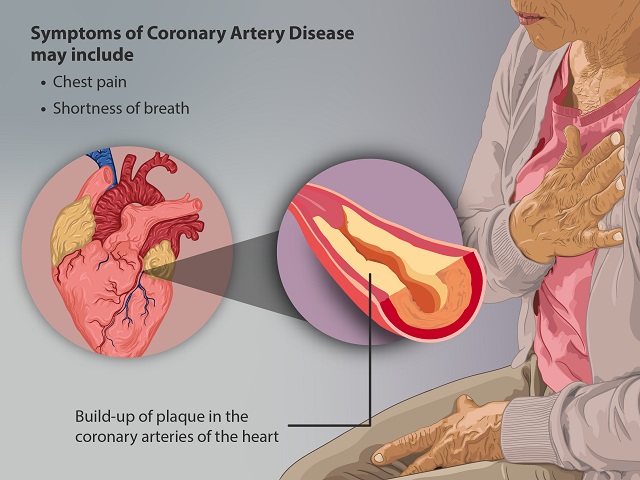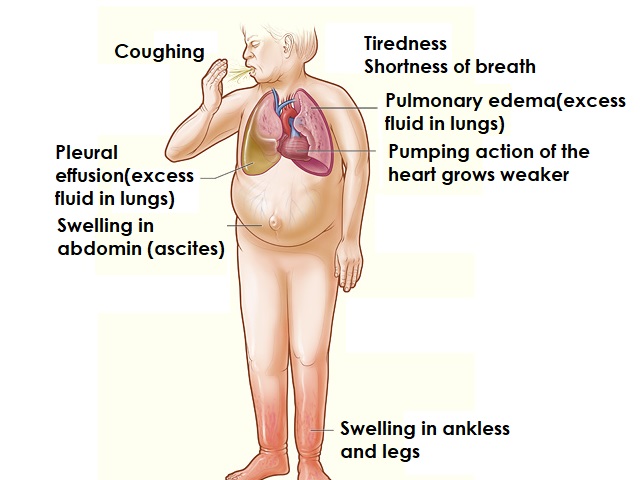4 Signs You May Have Retinal Artery Occlusion -- Symptoms, Causes, Effects, Treatment and Prevention
Retinal artery occlusion is a condition characterized by the blockage or occlusion of the retinal artery, which supplies oxygen and nutrients to the retina. The blockage can be caused by a blood clot, embolism (such as from a dislodged plaque or blood clot from another part of the body), or other factors that impede blood flow. This blockage can lead to sudden and severe vision loss in the affected eye. Here is a brief explanation of retinal artery occlusion, along with its symptoms, diagnosis, causes, effects, treatment, and prevention:
Symptoms of Retinal Artery Occlusion:
The symptoms of retinal artery occlusion may include:
- Sudden, painless, and severe vision loss in one eye
- A sudden decrease or loss of peripheral vision
- Blurred or distorted vision
- A curtain-like shadow or dark area that covers part of the visual field
Diagnosis of Retinal Artery Occlusion:
The diagnosis of retinal artery occlusion is typically made by an eye care professional. It may involve the following:
- Comprehensive eye examination, including visual acuity testing and examination of the retina
- Fundus fluorescein angiography to evaluate blood flow in the retina and identify the location and extent of the blockage
- Optical coherence tomography (OCT) to assess the thickness and integrity of the retinal layers
- Evaluation of the underlying systemic conditions and risk factors
Causes of Retinal Artery Occlusion:
Retinal artery occlusion can be caused by various factors, including:
- Embolism from a blood clot, plaque, or other debris
- Atherosclerosis or hardening of the arteries
- Thrombosis or blood clot formation within the retinal artery
- Vasculitis or inflammation of the blood vessels
- Cardiac conditions, such as atrial fibrillation or heart valve disease, which can increase the risk of blood clots
- Systemic conditions like hypertension, diabetes, or high cholesterol levels
Effects of Retinal Artery Occlusion:
Retinal artery occlusion can lead to:
- Sudden and severe vision loss in the affected eye, ranging from partial to total loss
- Permanent damage to the retina and optic nerve due to lack of oxygen and nutrients
- Potential complications, such as the development of neovascularization (abnormal blood vessel growth) or ischemic optic neuropathy (damage to the optic nerve)
Treatment of Retinal Artery Occlusion:
The treatment of retinal artery occlusion aims to restore blood flow, preserve vision, and prevent complications. However, the options for treatment are limited, and the focus is primarily on managing underlying conditions and reducing the risk of future occlusion. Treatment approaches may include:
- Immediate measures to lower intraocular pressure, such as ocular massage or lowering the head below the level of the heart
- Administration of oxygen therapy to increase oxygen supply to the retina
- Systemic treatment of underlying conditions, such as controlling hypertension, diabetes, or high cholesterol
- Antiplatelet or anticoagulant medications to prevent the formation of blood clots
- Consultation with a specialist for potential interventions like intra-arterial thrombolysis or embolectomy in certain cases
Prevention of Retinal Artery Occlusion:
Preventive measures for retinal artery occlusion include:
- Managing and controlling underlying systemic conditions like hypertension, diabetes, and high cholesterol
- Regular monitoring and management of cardiac conditions that may increase the risk of embolism
- Leading a healthy lifestyle with regular exercise, a balanced diet, and avoidance of smoking or excessive alcohol consumption
- Regular eye examinations to detect and manage risk factors or early signs of occlusion
Please note that the information provided above is not to replace professional medical advice. It is important to consult with a healthcare professional for an accurate diagnosis, individualized treatment, and further information.
References:
American Academy of Ophthalmology. (2020). Central Retinal Artery Occlusion. Retrieved from https://www.aao.org/eye-health/diseases/what-is-stroke-affecting-eye
National Eye Institute. (2019). Facts About Central Retinal Artery Occlusion. Retrieved from https://www.nei.nih.gov/learn-about-eye-health/eye-conditions-and-diseases/central-retinal-vein-occlusion-crvo
Image Attribution:
Featured image by sidthedoc, CC BY-SA 4.0, via Wikimedia Commons


















